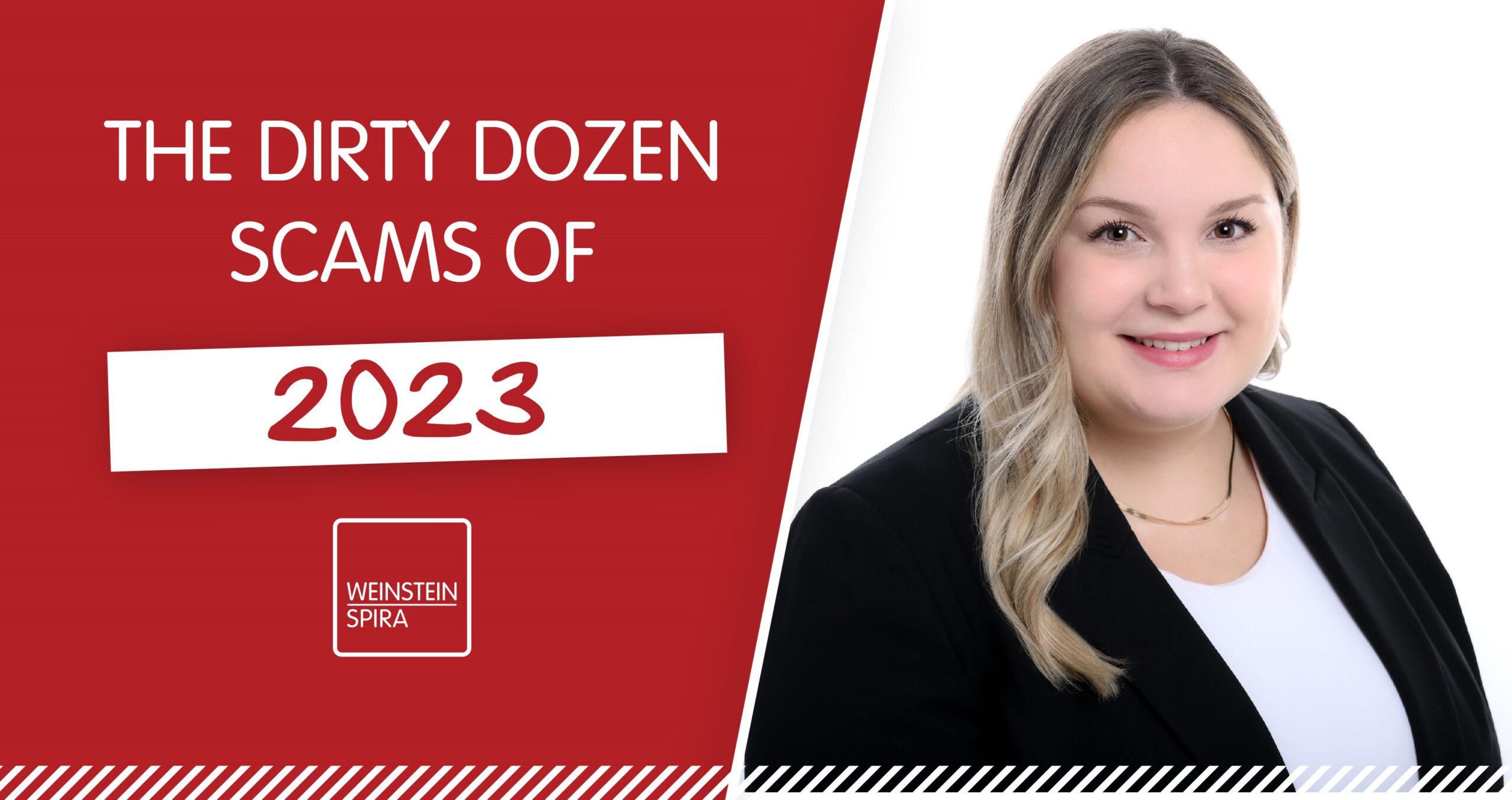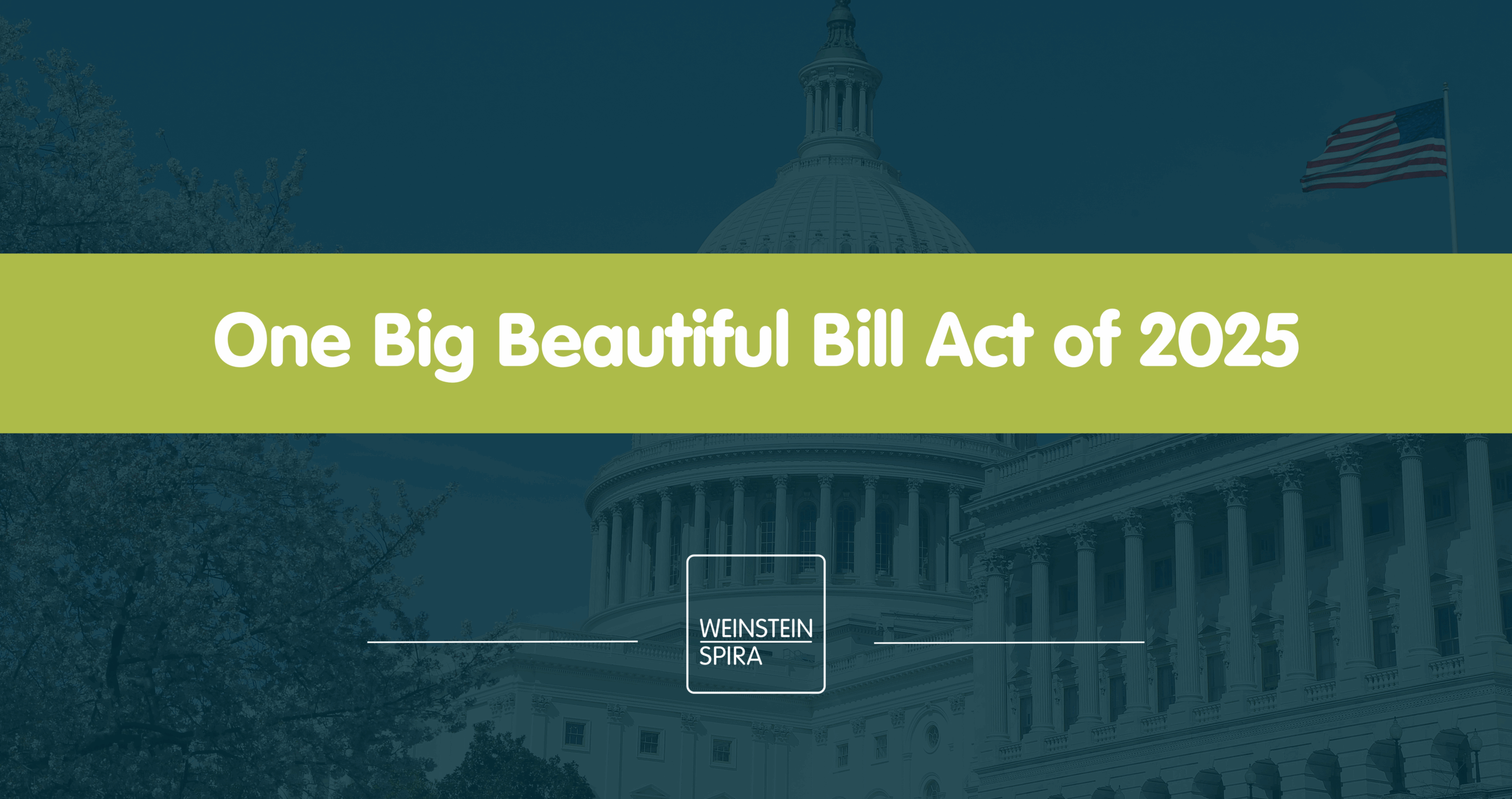Every year the Internal Revenue Service (IRS) publishes a list of taxpayer scams and tax avoidance schemes they call the “Dirty Dozen.” These fraudulent practices pose serious risks such as the loss of personal data, money and more. Although these scams peak during tax filing season, taxpayers must remain vigilant throughout the year to protect themselves from falling victim to these deceptive tactics. In this blog, I will list and explain each of the scams.
1. Employee Retention Credit Claims
The Employee Retention Tax Credit (ERC) is a real refundable tax credit for eligible businesses and tax-exempt organizations, but not for individuals. Scammers encourage ineligible individuals to take the credit by providing inaccurate information about eligibility. Most of the time, these scammers are seeking personal information under the guise of eligibility, which can later lead to identity theft.
2. Phishing and Smishing
Phishing and smishing is an attempt to steal personal information through fraudulent emails and text messages. These scammers will try to impersonate the IRS, fraudulently contacting people through email (phishing) and text messaging (smishing) on seemingly urgent matters, like an outstanding tax bill or information needed for a refund.
3. Online Account Help from Third-Party Scammers
Creating an online account with the IRS at IRS.gov is very easy and straightforward. It is the best way to access important tax information. However, there are third-party scammers that will try to help with account creation, with the sole purpose of stealing an individual’s personal and financial information.
4. False Fuel Tax Credit Claims
Like the ERC claim, the fuel tax credit is only eligible to certain taxpayers (those involved in off-highway businesses and farming). Swindlers falsely promote that ineligible taxpayers can claim the credit to get a larger refund.
5. Fake Charities
Scammers create phony charities to swindle individuals out of their money and sometimes even personal data. The IRS warns taxpayers to be aware that fraudulent charities become more prevalent during times of crisis and disaster. Taxpayers can claim charitable donations if they itemize deductions, but only if donations are going to qualified tax-exempt organizations.
6. Unscrupulous Tax Return Preparers
While we like to think that all tax return preparers are trustworthy, this is unfortunately not the case. Keep an eye out for red flags such as a preparer who does not want to sign or use their preparer tax identification number (PTIN), and NEVER sign a blank return.
7. Social Media: Fraudulent Form Filing and Bad Advice
We are in the digital age, and social media is becoming increasingly popular. Some con artists are providing false information on certain forms, or inaccurately telling people how to file to get a bigger refund. The IRS reminds taxpayers that “if something sounds too good to be true, it probably is.”
8. Spearphishing and Cybersecurity For Tax Professionals
Just like phishing schemes, spearphishing is when scammers send out targeted emails to businesses and organizations. These attempts are to collect personal information which can lead to identity theft or fraudulent returns being filed.
9. Offers in Compromise Mills
Offers in Compromise is a program that helps taxpayers who cannot settle their federal tax debts. There is an associated “mill” scheme that has ineligible people sign up for the program. By doing so, it can cost individuals thousands of dollars if they end up being ineligible. The IRS has a free tool for individuals to check for eligibility.
10. Schemes Aimed at High Income Filers
Scammers and taxpayers try to twist legitimate tax rules for the supposed financial benefit of paying less taxes. There are correct and appropriate ways to minimize the amount of taxes paid, but that should be left to a tax professional. One of the most frequent schemes involves Charitable Remainder Annuity Trusts (CRATS). CRATS is a legitimate way taxpayers can donate assets to charity. When misused, scammers try to eliminate ordinary income and/or capital gains from the sale of property.
11. Bogus Tax Avoidance Strategies
For a large fee, the swindler finds fictitious ways to save the taxpayer money by inflating tax deductions. There are a few ways this is promoted, so make sure to find a trusted tax preparer.
12. Offshore Accounts
Offshore accounts are used to hold digital assets such as crypto currency in an international location to hide these assets and conceal income. The swindlers promoting offshore accounts tell people that the assets will be out of reach of the IRS, which is not true.
Staying Free of Scams
Here are some quick tips on how to protect yourself from these tax scams:
- The IRS will only contact you through the mail and never over phone, email, or text messaging.
- Be aware of the personal information you share online. Scammers can use that information when impersonating the IRS.
- Choose tax professionals wisely.
- If you are unsure about your eligibility for a credit or deduction, the IRS has many great resources at IRS.gov.
In an era of advancing technology, staying vigilant against scams is a year-round imperative. From false charities to alluring tax-avoidance ploys, these deceptive practices remind us of the importance of safeguarding our personal data and finances. As we approach the new year, let us commit to knowledge, prudent online behavior, and seeking advice from trusted tax professionals. Stay safe, stay informed, and here’s to a scam-free year ahead!



